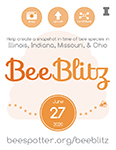You are here
Content filtered by visibility: Public
Project Updates
- Associated Project(s):Attached Files:
The Day After Tomorrow: Learning about Air Pollution with Vishal Verma
Associated Project(s):Executed Agreement between iSEE and MSTE to Continue Support for iCAP Portal
Associated Project(s):Mailbag solar article: Suggestion for UI solar panels
Provost letter about space survey 2020
The Day After Tomorrow: A Chat with Traci Barkely about the Positive Effects of Gardening.
Associated Project(s):Curtis Road landscaping
Associated Project(s):Is your office "Green"?
Associated Project(s):Student Sustainability Farm open!
Associated Project(s):Spring 2020 Project Deliverables
Associated Project(s):2020 BeeBlitz
Associated Project(s):SSC Final Report: Bike Path Renovation: Armory Avenue Path South of Gregory Hall
DRAFT iCAP 2020 for PUBLIC COMMENTS
Associated Project(s):Attached Files:Sustainability Council meeting June 15, 2020
Design drawings being reviewed
Associated Project(s):May 2020 Buyer's Share Report
Associated Project(s):Attached Files:The Day After Tomorrow: Discussing Science-Informed Policy
Associated Project(s):First bicycle registration on the new system!
Associated Project(s):Inventory of Low-Flow Fixtures in Campus Buildings
Associated Project(s):Restrooms v3 from Dave Boehm, June 2, 2020
Associated Project(s):Attached Files:


